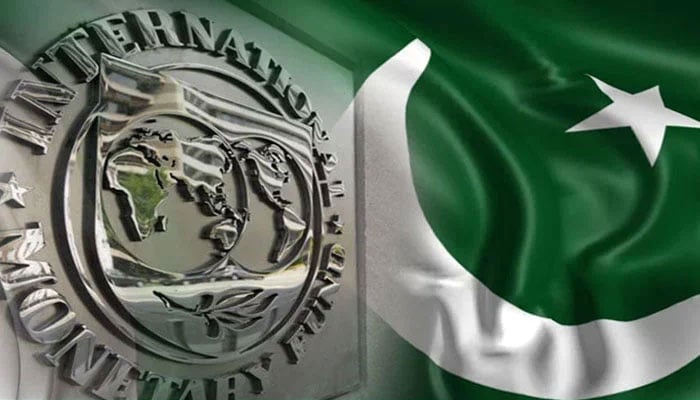Roundtable calls for fiscal overhaul, consensus on economic agenda before polls
Advisory committee comprising mainstream political parties has recommended realigning the National Finance Commission (NFC) with provincial capabilities to boost revenue mobilisation
ISLAMABAD: The advisory committee comprising mainstream political parties has recommended realigning the National Finance Commission (NFC) with provincial capabilities to boost revenue mobilisation. The parties advocate for initiating new IMF programmes, improving governance and fostering a minimum broader consensus on the economic agenda for the upcoming general elections.
Former finance minister Dr Hafiz A Pasha has proposed imposing an additional Rs2,000 billion in taxes for the incoming government. This includes collecting Rs540 billion from the property sector, implementing an Agriculture Income Tax of up to Rs270 billion, imposing a 10 percent inheritance tax and introducing income tax on retailers and green tax among other measures. During a roundtable session “Prosperity for Pakistan: Policy Agenda for Incoming Government,” jointly organised by UNDP and SDPI, Dr Hafiz Pasha stressed the need to update the valuation of rental property, impose a 10 percent inheritance tax and bring agriculture and retailers fully into the tax net to generate an additional Rs2,000 billion annually.
UNDP’s Resident Representative Dr. Samuel Rizk said the roundtable aimed to facilitate dialogue ahead of the elections, providing an environment for political parties to discuss an agenda for prosperity with equitable growth. He highlighted Pakistan’s lagging progress on Sustainable Development Goals (SDGs) indicators and emphasised the importance of catching up before the 2030 deadline.
Senator Musadiq Malik of PMLN stressed that the economy is a multifaceted issue and advocated for addressing unemployment and poverty. He criticised the TERF scheme for favoring industrialists over Small and Medium Enterprises (SMEs).
Former minister of state for finance Dr Aisha Ghaus Pasha claimed that their 16-month rule had saved Pakistan from default. She acknowledged the challenges faced, including a rise in unemployment and inflation, and suggested that Pakistan would need another IMF programme for structural reforms.
Senator Saleem Mandviwalla, Chairman of the Senate Standing Committee on Finance, identified governance as the real challenge for the country’s economy. He criticised lack of implementation of reports by Dr. Ishrat Hussain and highlighted the delayed implementation of EXIM Bank idea.
Mian Iftikhar Hussain of the ANP highlighted issues in Khyber Pakhtunkhwa, including terrorism and an underdeveloped irrigation system affecting the agriculture sector. He emphasised the potential of the agriculture sector if water availability is properly channeled.
Senator Taj Haider from the PPP called for increasing production while reducing the cost of production. He expressed skepticism about privatisation in Pakistan and suggested that public-private partnerships could offer solutions. Shaza Fatime Khawaja of the PMLN stressed the need for ease of doing business, policy consistency and a broader consensus on the charter of the economy.
-
 James Van Der Beek's Friends Helped Fund Ranch Purchase Before His Death At 48
James Van Der Beek's Friends Helped Fund Ranch Purchase Before His Death At 48 -
 King Charles ‘very Much’ Wants Andrew To Testify At US Congress
King Charles ‘very Much’ Wants Andrew To Testify At US Congress -
 Rosie O’Donnell Secretly Returned To US To Test Safety
Rosie O’Donnell Secretly Returned To US To Test Safety -
 Meghan Markle, Prince Harry Spotted On Date Night On Valentine’s Day
Meghan Markle, Prince Harry Spotted On Date Night On Valentine’s Day -
 King Charles Butler Spills Valentine’s Day Dinner Blunders
King Charles Butler Spills Valentine’s Day Dinner Blunders -
 Brooklyn Beckham Hits Back At Gordon Ramsay With Subtle Move Over Remark On His Personal Life
Brooklyn Beckham Hits Back At Gordon Ramsay With Subtle Move Over Remark On His Personal Life -
 Meghan Markle Showcases Princess Lilibet Face On Valentine’s Day
Meghan Markle Showcases Princess Lilibet Face On Valentine’s Day -
 Harry Styles Opens Up About Isolation After One Direction Split
Harry Styles Opens Up About Isolation After One Direction Split -
 Shamed Andrew Was ‘face To Face’ With Epstein Files, Mocked For Lying
Shamed Andrew Was ‘face To Face’ With Epstein Files, Mocked For Lying -
 Kanye West Projected To Explode Music Charts With 'Bully' After He Apologized Over Antisemitism
Kanye West Projected To Explode Music Charts With 'Bully' After He Apologized Over Antisemitism -
 Leighton Meester Reflects On How Valentine’s Day Feels Like Now
Leighton Meester Reflects On How Valentine’s Day Feels Like Now -
 Sarah Ferguson ‘won’t Let Go Without A Fight’ After Royal Exile
Sarah Ferguson ‘won’t Let Go Without A Fight’ After Royal Exile -
 Adam Sandler Makes Brutal Confession: 'I Do Not Love Comedy First'
Adam Sandler Makes Brutal Confession: 'I Do Not Love Comedy First' -
 'Harry Potter' Star Rupert Grint Shares Where He Stands Politically
'Harry Potter' Star Rupert Grint Shares Where He Stands Politically -
 Drama Outside Nancy Guthrie's Home Unfolds Described As 'circus'
Drama Outside Nancy Guthrie's Home Unfolds Described As 'circus' -
 Marco Rubio Sends Message Of Unity To Europe
Marco Rubio Sends Message Of Unity To Europe




